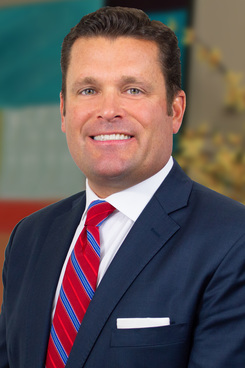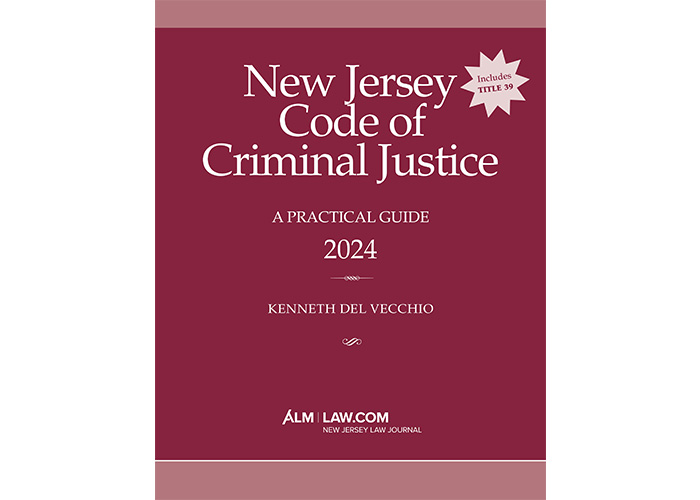As ways to deal with criminal proceedings during COVID-19 restrictions play out nationwide, New Jersey’s chief federal judge has issued an order providing for various types of proceedings to be conducted by video or even phone conference, a measure that one practitioner says “strikes a reasonable balance” between constitutional and health concerns.
U.S. Chief Judge Freda Wolfson’s order, dated Monday, cites provisions of the federal Coronavirus Aid, Relief, and Economic Security Act (CARE Act) passed on March 27, mainly one “authorizing the use of video and telephone conferencing, under certain circumstances and with the consent of the defendant, for various criminal case events during the course of the COVID-19 emergency[.]”
Wolfson found, “ pursuant to Section 15002(b)(1) of the CARE Act … that criminal proceedings cannot be conducted in person without seriously jeopardizing public health and safety,” the order said.
It directs that felony or juvenile pleas and sentencings may be conducted by video, or if video is unavailable, by phone, with the defendant’s consent, “if a judge in an individual case finds, for specific reasons, that any felony plea or felony sentencing, or any equivalent plea and sentencing, as well as proceedings under the Federal Juvenile Delinquency Act, cannot be further delayed without serious harm to the interests of justice[.]”
It also names these types of hearings as permissible to conduct remotely: detention hearings, initial appearances, preliminary hearings, waivers of indictment, arraignments, probation and supervised release revocation proceedings, pretrial release revocation proceedings, appearances under Rule 40 of the Federal Rules of Criminal Procedure, misdemeanor pleas and sentencings, and some juvenile delinquency proceedings.
The order can remain in effect up to 90 days. It came around the same time that the Judicial Conference of the United States temporarily approved the use of remote technology in certain criminal proceedings.
According to a spokesman for the U.S. Attorney’s Office for the District of New Jersey, both that office and the Federal Public Defender’s Office for the District of New Jersey supported entry of the order, “and we don’t anticipate any problems complying with it.” A call to the Newark office of the Federal Public Defender’s Office for the District of New Jersey wasn’t returned.
Defense attorney Christopher Adams said he has had good experiences so far, and defendants are likely to opt for using the remote measures rather than wait for in-person proceedings.
“One week before the order, I had three bail review hearings held … telephonically. The system worked well and in all three circumstances the defendants consented to the remote system because the alternative was uncertain,” said Adams, the criminal practice chairman at Greenbaum Rowe Smith & Davis and a former president of the Association of Criminal Defense Lawyers of New Jersey, in an email Thursday.
“They could have their review done quickly and that day, or they could wait until they would be permitted to come to court. Of course there are constitutional issues at stake, but there are also public health/life and death decisions at stake and Judge Wolfson’s order strikes a reasonable balance between the two,” Adams added.
Another defense attorney, John Azzarello, said in a Thursday email, “I anticipate filing a bail application tomorrow and expect it should be heard sometime early next week or certainly by the end of the week.”
“I assume the parties will encounter a few glitches here and there as they begin the implementation of the system for the first time in history of the court. I think it is realistic to expect a few bumps in the road as this protocol gets off the ground,” added Azzarello, of Whipple Azzarello in Morristown, the ACDL-NJ’s current president.
He added that Wolfson and court administration “should be commended for establishing protocols and identifying available technology that will allow the vast majority of criminal case proceedings to move forward including pleas and sentencings,” and “the federal judiciary has done an excellent job of creating a virtual courtroom process that will allow defendants continued access to the courts to pursue relief while simultaneously considering the health, safety and welfare of everyone involved in the court system including offenders, lawyers, judges, law clerks, courtroom staff, court security officers and U.S. Marshals.”
A dispute over whether certain criminal proceedings may be conducted remotely recently played out in the U.S. District Court for the District of Columbia in the case of Charles Hall, who was facing a sentencing postponement until May when a clinic team from Georgetown Law Center filed a memorandum with the court seeking to waive his physical appearance at the hearing, the National Law Journal, a sibling publication, reported. Hall sought to avoid the delay largely because he was likely to be released based on time already served at a federal prison in Loretto, Pennsylvania, the report noted. Chief Judge Beryl Howell ultimately allowed the hearing to be conducted remotely and sentenced Hall to time served and three years of supervised release.
NOT FOR REPRINT
© 2024 ALM Global, LLC, All Rights Reserved. Request academic re-use from www.copyright.com. All other uses, submit a request to [email protected]. For more information visit Asset & Logo Licensing.


 Christopher D. Adams/courtesy photo
Christopher D. Adams/courtesy photo







